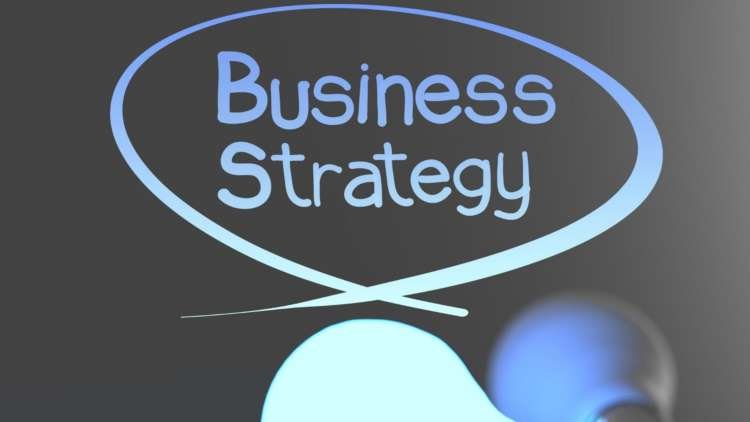Paving the way for your own business recovery strategy
Published by linker 5
Posted on August 27, 2020
5 min readLast updated: January 21, 2026

Published by linker 5
Posted on August 27, 2020
5 min readLast updated: January 21, 2026

By Rupert Morrison CEO of Orgvue
The economic impact of C ovid-19 is understood to be triggering the largest global recession since World War II. This is a harsh reminder that the worst of the pandemic is not behind us and the onus is on businesses to shape their own destinies so they can build their way back to profit and prosperity in these turbulent times.
Leaders that wait around for a silver bullet solution to fall into their laps will have a rough road to recovery ahead. Businesses must find ways to adapt and return to a new way of working, and fast. How? By developing their own recovery strategies via continuous analysis, modelling, planning and execution. Here are the most important factors to bear in mind:
Continuing to monitor staff health
Focusing on your staff is always a good place to start. At a time where we are all trying to navigate this deadly virus while continuing to remain productive, monitoring the health and wellbeing of your workforce is going to be key.
For specific businesses or roles where working from home hasn’t been possible, this begins with tracking all cases of Covid-19 within the business across locations and identifying where points of contact between locations exist. Look to automate the data collection and reporting for this so that the health status of your workforce is always up to date and can be referenced at any moment.
Even when the pandemic begins to subside, 48% of workers are likely to continue working from home, at least some of the time, according to research from Gartner. Virtual working environments are part and parcel of the future of work and ignoring the accelerated rate at which the workforce are embracing this way of working is nothing short of naive.
Business leaders must recognise this shift and model how it impacts their business, as well as how the future of the way work is done will take shape in the organisation. Technological advancements are now allowing business leaders to view and monitor their organisations through a variety of lenses. This goes beyond the structure of the workforce by analysing and understanding the work itself. A good starting point is identifying what work can be done remotely versus what cannot and how changing traditional ways of working will impact productivity.
Additionally, the duty of care to protect employees’ health and wellbeing cannot be ignored when they are working remotely. This involves identifying mental health challenges alongside physical health and supporting a healthy at-home-working environment wherever possible.
Confident leadership is the basis of an agile business
For many businesses, accomplishing critical tasks in the way they did before is no longer possible. Perhaps they have fewer employees, their supply chains have been impacted or their product is no longer in demand.
Change can be a scary thing, especially for business leaders that have been operating in the same way for years. This is a reminder that the ability to be flexible and agile has never been as important as it is now. So cut the delusions and the ‘burying your head in the sand’, it’s time to limber up and plan around what’s happening on the ground.
One way to do this is by spotting opportunities for process change in order to achieve the same ends. Where multiple meetings, extensive planning and piloting may have been involved in changing established ways of working before, the pandemic has created the need for these processes to be accelerated.
Whether it’s adapting to social distancing measures or repurposing elements of your organisation to bring in new revenue streams, thinking creatively and acting swiftly will be the difference between success and failure for many businesses.
During lockdown, for instance, UK-based home improvement retailer B&Q, utilised the unused customer car parks and offered a drive-through style ‘click and collect’ to respect social distancing guidelines. When this proved popular, they responded to large queues by introducing a two-step control system using email and phone to manage customer visits.
Just because decisions may need to be made and implemented on the fly, doesn’t mean they should be made with less confidence or clarity. Making effective changes like this in a timely manner, relies on two things: readily accessible integrated organisational data, and effective scenario planning.
Perpetual planning to boost productivity
Irrespective of Covid-19, transformation and disruption continues to gather pace and the world is becoming more unpredictable, with even the best business forecasters unable to reliably plan more than 400 days in advance.
Of course, in the current climate, circumstances are continually evolving with organisations tackling change on a daily basis. Keeping the workforce healthy, safe and productive while being able to incrementally adjust your planning on a continual basis, will allow you to be agile in the face of change.
It’s time to move away from theories and forecasts, as they are no longer providing us with the most reliable data. Instead, it’s time for business to learn from experience in real-time. Want to always be on the front foot? The concept of continuous analysis, modelling, planning and execution is the answer.
Explore more articles in the Business category











